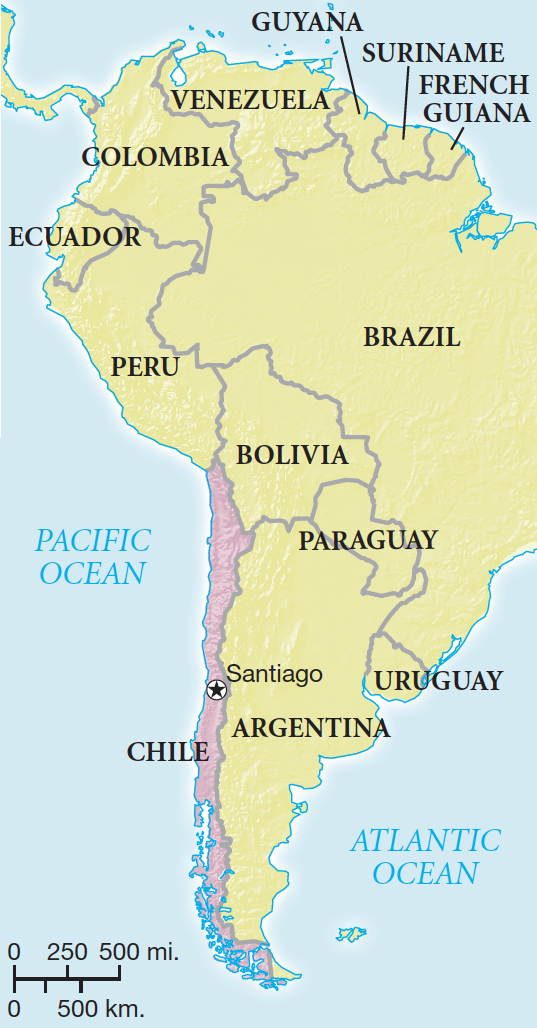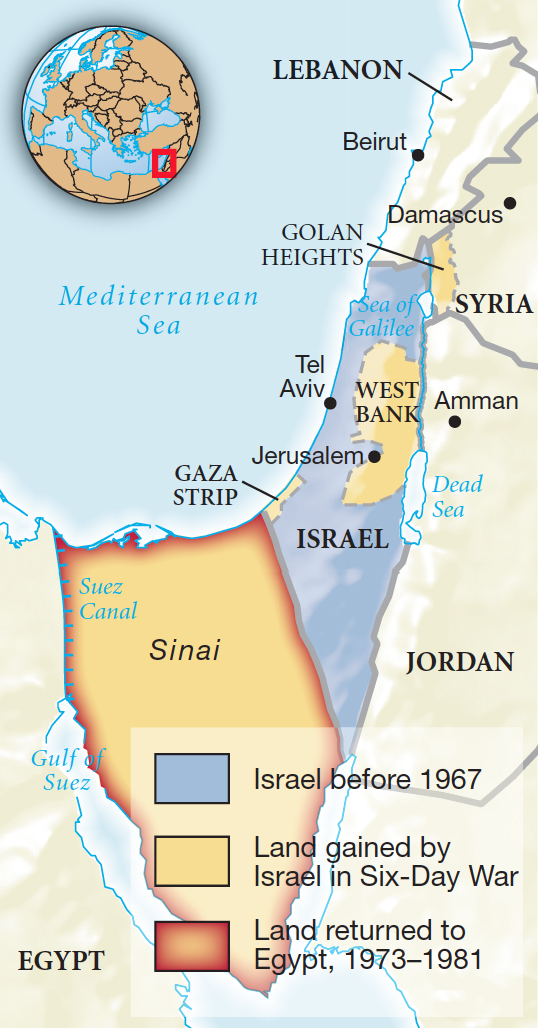Shoring Up U.S. Interests around the World.
Printed Page 813 Chapter Chronology

Shoring Up U.S. Interests around the World. Despite the thawing in U.S. relations with the Soviet Union and China, in Vietnam and elsewhere, Nixon and Kissinger continued to view left-wing movements as threats to U.S. interests and actively resisted social revolutions that might lead to communism. The Nixon administration helped overthrow Salvador Allende, a self-proclaimed Marxist who was elected president of Chile in 1970. Since 1964, the CIA and U.S. corporations concerned about nationalization of their Chilean properties had assisted Allende's opponents. After Allende became president, Nixon ordered the CIA director to destabilize his government, and in 1973, the CIA helped the Chilean military engineer a coup, killing Allende and establishing a brutal dictatorship under General Augusto Pinochet.

In other parts of the world, too, the Nixon administration backed repressive regimes. In southern Africa, it eased pressures on white minority governments that tyrannized blacks. In the Middle East, the United States sent massive arms shipments to support the shah of Iran's harsh regime because Iran had enormous petroleum reserves and seemed a stable anti-Communist ally. Like his predecessors, Nixon balanced defending Israel's security with seeking the goodwill of Arab nations strategically and economically important to the United States. Conflict between Israel and the Arab nations had escalated into the Six-Day War in 1967, when Israel attacked Egypt after Egypt had massed troops on the Israeli border and cut off the sea passage to Israel's southern port (see map page 814). Although Syria and Jordan joined the war on Egypt's side, Israel won a stunning victory, seizing the Sinai Peninsula and Gaza Strip from Egypt, the Golan Heights from Syria, and the West Bank, where hundreds of thousands of Palestinians lived, from Jordan.
Six-Day War
1967 conflict between Israel and the Arab nations of Egypt, Syria, and Jordan. Israel attacked Egypt after Egypt had massed troops on its border and cut off the sea passage to Israel's southern port. Israel won a stunning victory, seizing territory that amounted to twice its original size.
That decisive victory did not quell Middle Eastern turmoil. In October 1973, on the Jewish holiday Yom Kippur, Egypt and Syria surprised Israel with a full-scale attack. When the Nixon administration sided with Israel, Arab nations retaliated with an oil embargo that created severe shortages in the United States. After Israel repulsed the attack, tensions remained high. The Arab countries refused to recognize Israel's right to exist, Israel began to settle its citizens in the West Bank and other territories occupied during the Six-Day War, and no solution could be found for the Palestinian refugees who had been displaced by the creation of Israel in 1948. The simmering conflict contributed to anti-American sentiment among Arabs who viewed the United States as Israel's supporter.